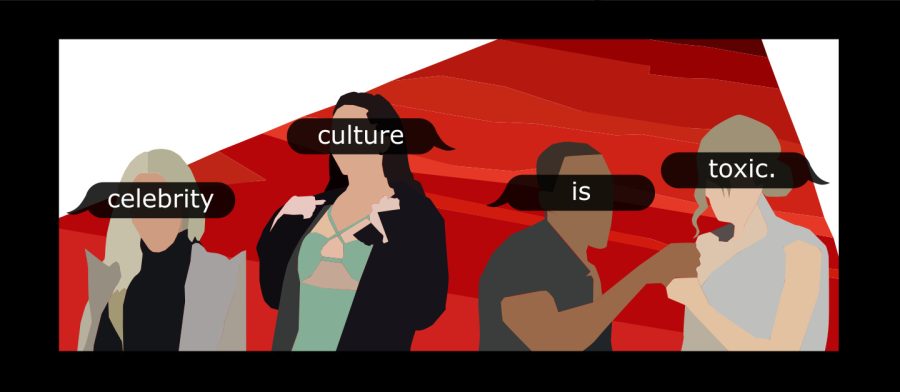The Phenomenon of Celebrities: A Cultural Force and Its Implications
Related Articles: The Phenomenon of Celebrities: A Cultural Force and Its Implications
Introduction
With great pleasure, we will explore the intriguing topic related to The Phenomenon of Celebrities: A Cultural Force and Its Implications. Let’s weave interesting information and offer fresh perspectives to the readers.
Table of Content
The Phenomenon of Celebrities: A Cultural Force and Its Implications

The concept of celebrity, a person of public interest whose life and activities are widely followed, has evolved significantly throughout history. From the royalty and nobility of ancient times to the modern-day icons of film, music, and social media, the role of celebrities in society has undergone a profound transformation. This article aims to provide a comprehensive exploration of the phenomenon of celebrities, examining their impact on culture, the factors contributing to their rise, and the implications of their influence.
The Evolution of Celebrity:
Historically, celebrity status was primarily reserved for individuals of royal lineage, religious figures, or those who held positions of significant political or military power. The invention of the printing press in the 15th century, and later the development of mass media, democratized the concept of fame, allowing individuals outside of the traditional elite to achieve recognition. The rise of newspapers, magazines, and radio in the 19th and 20th centuries provided platforms for disseminating information about individuals, fostering a culture of celebrity worship.
The emergence of television and film in the mid-20th century further propelled the celebrity phenomenon. Hollywood stars became household names, their lives and accomplishments meticulously documented and disseminated to a global audience. The advent of the internet and social media in the late 20th and early 21st centuries has revolutionized the concept of celebrity, democratizing its accessibility and amplifying its reach. Individuals can now achieve fame through various online platforms, often bypassing traditional gatekeepers like record labels or film studios.
The Cultural Impact of Celebrities:
Celebrities exert a profound influence on culture, shaping trends in fashion, music, language, and behavior. They serve as role models, inspiring aspirations and influencing consumer choices. Their public personas and lifestyles are often emulated, creating a ripple effect across various aspects of society. This influence can be both positive and negative, depending on the values and behaviors promoted by the celebrities in question.
Celebrities can be powerful advocates for social causes, using their platforms to raise awareness about critical issues and inspire action. They can also contribute to cultural understanding and appreciation, promoting diversity and inclusivity. However, celebrities can also perpetuate harmful stereotypes, promote unhealthy body images, or engage in behaviors that contribute to social problems like substance abuse or violence.
Factors Contributing to Celebrity Status:
The factors that contribute to celebrity status are multifaceted and complex. They include:
- Talent and Skill: While not the sole determinant, talent and skill are often essential components of achieving celebrity status. Whether it be in music, acting, sports, or other fields, individuals with exceptional abilities often attract public attention and admiration.
- Charisma and Personality: Celebrities often possess a certain charisma or charm that makes them relatable and engaging to audiences. They may have captivating personalities, a sense of humor, or a unique style that sets them apart.
- Media Exposure and Promotion: Access to media platforms and effective promotion play a crucial role in building celebrity status. Public relations teams, social media campaigns, and strategic media appearances can help amplify an individual’s visibility and recognition.
- Luck and Timing: A certain degree of luck and favorable timing can also contribute to celebrity status. Being in the right place at the right time, or having a breakthrough moment that resonates with the public, can propel individuals to fame.
- Social Media Influence: The rise of social media has fundamentally altered the landscape of celebrity. Individuals can now cultivate a following and achieve fame through online platforms, bypassing traditional gatekeepers. Social media allows celebrities to directly connect with their fans, fostering a sense of intimacy and engagement.
The Implications of Celebrity Culture:
The rise of celebrity culture has significant implications for society, both positive and negative. Some of the key implications include:
- Influence on Consumerism: Celebrities are powerful influencers of consumer behavior. Their endorsements, product placements, and lifestyle choices can significantly impact purchasing decisions. This influence can be both beneficial, driving innovation and promoting new products, and harmful, fueling consumerism and encouraging unsustainable consumption patterns.
- Impact on Body Image and Self-Esteem: Celebrities often set unrealistic standards of beauty and success, which can negatively impact body image and self-esteem, particularly among young people. The constant exposure to idealized images can contribute to feelings of inadequacy and dissatisfaction.
- Erosion of Privacy: Celebrities often face intense scrutiny and intrusion into their personal lives. The constant media attention and online presence can lead to a loss of privacy and a sense of alienation from the public eye.
- Impact on Political Discourse: Celebrities can play a significant role in political discourse, using their platforms to express opinions and advocate for causes. While this can be a powerful tool for promoting social change, it can also lead to the trivialization of important issues and the blurring of lines between entertainment and politics.
FAQs About Celebrities:
1. What is the difference between fame and celebrity?
While both terms relate to public recognition, fame is broader and can refer to recognition for any reason, while celebrity specifically implies a level of public interest and cultural influence.
2. Are celebrities role models?
Whether celebrities should be considered role models is a matter of debate. While they can inspire and influence behavior, their personal lives and choices are often complex and not always exemplary.
3. What are the ethical implications of celebrity culture?
Celebrity culture raises ethical concerns regarding privacy, exploitation, and the potential for manipulation. It also raises questions about the responsibilities of celebrities to use their platforms for good and the impact of their actions on society.
4. How has the internet changed the concept of celebrity?
The internet has democratized celebrity, allowing individuals to achieve fame through online platforms and bypassing traditional gatekeepers. Social media has also transformed the relationship between celebrities and their fans, fostering a sense of intimacy and direct engagement.
5. What is the future of celebrity culture?
The future of celebrity culture is likely to be shaped by the continued evolution of technology and the growing influence of social media. New platforms and technologies will continue to emerge, influencing how we consume and engage with celebrities.
Tips for Engaging with Celebrity Culture:
- Be Critical: Approach celebrity culture with a critical eye, recognizing that it is often constructed and manipulated for entertainment and profit.
- Focus on Substance: Pay attention to the values and messages promoted by celebrities, rather than simply their appearances or lifestyles.
- Support Responsible Celebrities: Support celebrities who use their platforms to advocate for positive social change and promote responsible behavior.
- Promote Diversity and Inclusivity: Challenge representations of celebrities that perpetuate harmful stereotypes and support the inclusion of diverse voices and perspectives.
- Prioritize Your Own Values: Remember that celebrity culture is a reflection of broader societal values. It is important to prioritize your own values and make informed decisions about how you engage with celebrities.
Conclusion:
The phenomenon of celebrities is a complex and multifaceted aspect of modern culture. Their influence is undeniable, shaping trends, inspiring aspirations, and influencing consumer choices. While celebrities can be powerful forces for good, promoting social change and cultural understanding, they can also perpetuate harmful stereotypes, promote unrealistic expectations, and erode privacy. It is crucial to engage with celebrity culture critically, recognizing its potential for both positive and negative impact. By understanding the factors that contribute to celebrity status, the implications of their influence, and the ethical considerations involved, individuals can navigate the world of celebrity with greater awareness and discernment.








Closure
Thus, we hope this article has provided valuable insights into The Phenomenon of Celebrities: A Cultural Force and Its Implications. We hope you find this article informative and beneficial. See you in our next article!